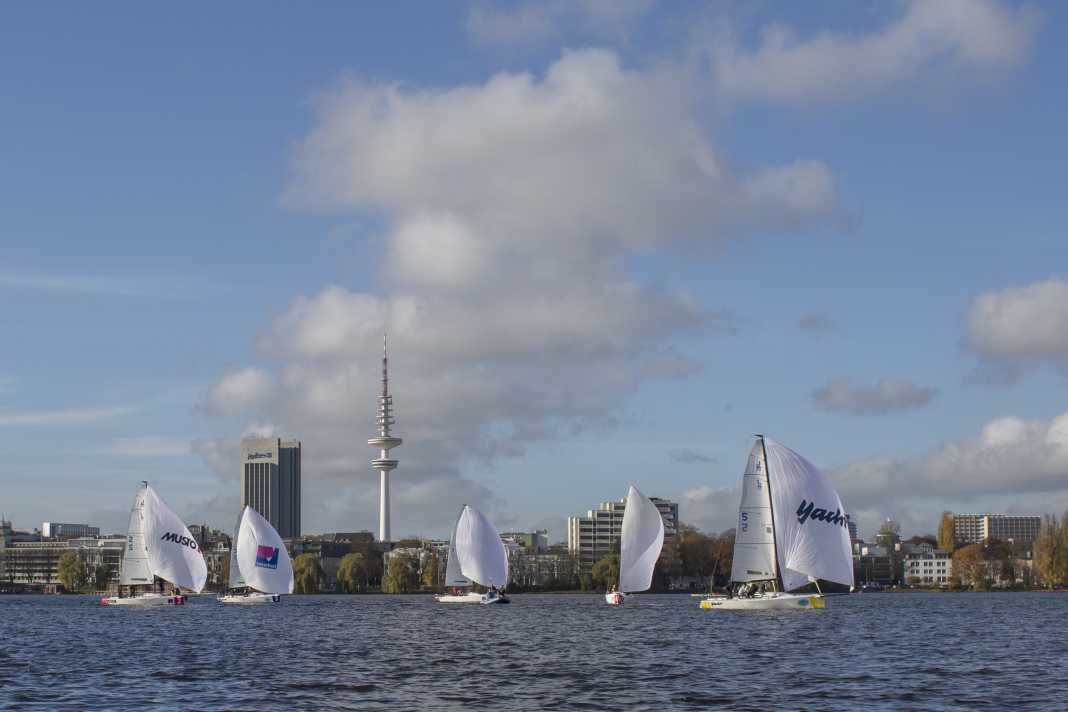Underground extension: Last-minute manoeuvre - no construction site in the Alster?
Max Gasser
· 27.02.2025






A few weeks ago, the plan to fill in 50,000 square metres of Hamburg's Alster lake to enable the construction of a new underground railway line also attracted the attention of sailors. According to reports in the Hamburger Abendblatt newspaper, the Hamburg transport authority was apparently examining whether areas on the eastern side of the Outer Alster in front of the Hotel Atlantic and in Hohenfelder Bucht could be drained. These were to be used as storage areas for construction equipment, lorries and concrete silos. To do this, the corresponding water areas would have had to be separated with sheet piling, pumped dry and then filled in.
In addition to rowing clubs, Tobias König, the chairman of the North German Regatta Association (NRV), also raised his voice against the project and started a petition. Almost 9,000 people joined his call to leave the Alster untouched. Although the planned filling of the lake would only affect around three per cent of Hamburg's Outer Alster and would presumably only have a marginal impact on local sailing, König spoke of a "catastrophe for Hamburg", among other things.
Before the general election: Political timing of the relativisation
The water sports enthusiasts' efforts now seem to be bearing fruit. Hamburger Hochbahn has declared that the establishment of "construction site facilities" in the Outer Alster is unlikely and is not being pursued. In view of the fierce public debate, the company felt compelled to make a clarification. In principle, sealed areas would be favoured for construction site facilities. Parks and other green spaces should also be spared as far as possible.
It is striking that this relativisation of the plans is taking place before the parliamentary elections in Hamburg next Sunday. Critics see this as a tactical move to avoid jeopardising potential votes shortly before the election. However, Hochbahn emphasises that it is only necessary to examine all options in order to make the planning approval decision legally secure.
Future of the U5
Despite the "Alster controversy", planning for the new U5 is progressing. The new line is not only set to become Germany's most modern underground railway, but also the one with the greatest impact on the climate. Over a distance of almost 25 kilometres, it will carry up to 315,000 passengers a day without a driver. The line will run from the purpose-built Bramfeld underground station east of the Alster, then past Jungfernstieg and west of the Alster to the newly built Arenen Volkspark station. At a cost of between 14 and 16.5 billion euros, the U5 is one of Hamburg's largest infrastructure projects. The federal government is bearing a significant proportion of these costs. With the opening of sections from 2027, the U5 project should ultimately be completed in 2040.
